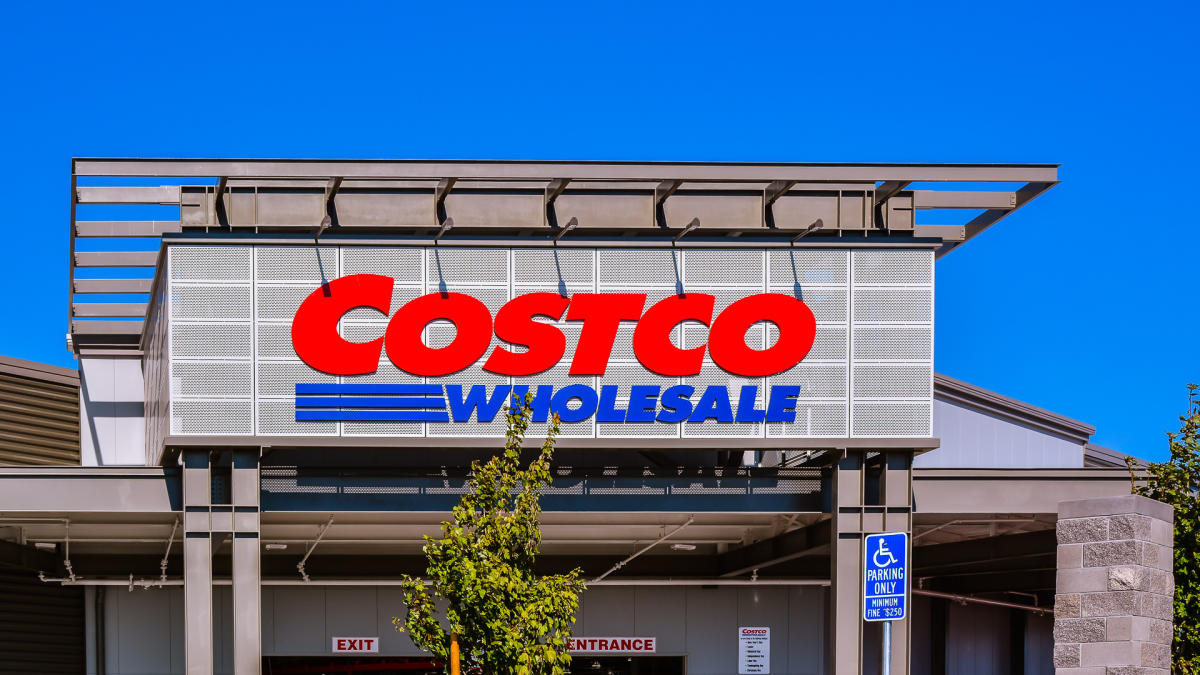Right now, over 4000 logistics jobs are open in the United States. This huge number shows how much the logistics field needs skilled workers. If you’re looking for a job in logistics or thinking about changing careers, there are many opportunities waiting for you.
Logistics jobs vary widely. Positions include warehouse associates, transportation coordinators, inventory managers, and supply chain analysts. Jobs are available in different areas like transportation, warehousing, and e-commerce. This offers many choices for people wanting to work in logistics. It’s a great chance to be part of an industry that’s key to moving goods and services efficiently.
So, why are there so many logistics job openings now? What’s causing this big demand for workers? We will look into the reasons behind the logistics job increase. We’ll talk about different job roles, who the big companies are, and give tips on how job seekers can succeed. Let’s get started!
Unpacking the Logistics Job Boom: Insights on the Sudden Surge
The logistics job market in the United States has seen a rapid increase in demand. The economy’s growth has raised the need for workers in transportation and warehousing. Also, with more people buying online, e-commerce has created lots of logistics jobs.
Current Logistics Job Market Overview in the US
The US logistics job market is booming, offering many jobs across different sectors. Jobs range from warehouse operations to transportation management. This surge is due to the need for moving goods and services all over the country efficiently.
Over 8.6 million people now work in logistics in the United States. This number keeps going up as companies make their supply chains better and optimize logistics operations.
The Pivotal Role of Transportation and Warehousing in Economic Growth
Transportation and warehousing are key to economic growth. Moving goods efficiently helps businesses meet consumer demands quickly. As the economy gets bigger, so does the demand for logistics workers to manage transportation and warehouses.
Logistics workers are vital in keeping supply chains running smoothly. They ensure products get from makers to stores and customers without a hitch. This helps the economy grow by making sure products are delivered well and affordably.
Factors Contributing to the Increased Demand for Logistics Positions
The demand for logistics jobs has shot up for many reasons. A big one is how much e-commerce has grown. More people shopping online means a bigger need for fast, reliable delivery.
Online shopping’s growth has pumped up the need for transportation and delivery. Logistics workers now have to manage complicated networks to get orders to customers efficiently. This means taking care of inventory, processing orders, and delivering items right to the doorstep.
Global expansion has also upped the need for logistics workers. Companies going global need skilled folks to handle international supply chains and logistics. Plus, tech advances have changed logistics, creating more jobs. Things like automation, data analytics, and artificial intelligence have made logistics smoother and cheaper. People skilled in these areas are very sought after.
In conclusion, the US logistics job market is booming because of economic growth, the crucial role of transportation and warehousing, and e-commerce’s rise. Those looking for logistics jobs should learn the right skills to succeed in this dynamic industry.
An In-Depth Look at Logistics Employment Opportunities
Logistics jobs offer many roles for people at all career levels. Whether you’re just starting or looking for a higher-level position, there’s something in logistics for you.
Breaking Down the Variety of Roles in Logistics
The logistics field has a lot of different jobs in many areas. Common jobs include:
- Warehouse Associate
- Inventory Control Specialist
- Transportation Coordinator
- Supply Chain Analyst
- Logistics Coordinator
- Operations Manager
These roles handle tasks like managing stock, planning shipments, checking data, and making sure goods move efficiently.
Emphasis on Entry-Level Vs Mid-Senior Level Openings
For newcomers to logistics, entry-level jobs are a great start. They usually don’t need much experience. Plus, they often come with training to help you learn.
Jobs for more experienced folks require deeper knowledge. They involve leading teams, making big decisions, and keeping things running smoothly.
Contract, Temporary, and Permanent Logistics Positions
Logistics jobs can be contract, temporary, or permanent.
- Contract positions
- Temporary positions
- Permanent positions
Contract jobs last for a set time. Temporary jobs are short, often for busy times or to fill in gaps. Permanent jobs give long-term work and benefits.
You can choose what suits your career plans. You might like contract work, short-term jobs, or a stable, long-term role.
Key Players and Major Employers in the US Logistics Sector
The logistics sector in the United States is diverse. It includes known logistics providers, transportation firms, e-commerce giants, and retailers. They are crucial to the logistics industry in the US.
Working for these companies brings job security and many chances for growth. You can get valuable experience and learn about large-scale logistics projects. This shapes your career in this field.
Some of the top names and employers in the US logistics sector include:
| Company | Industry |
|---|---|
| UPS | Logistics and Delivery Services |
| FedEx | Logistics and Delivery Services |
| Amazon | E-commerce and Logistics |
| Walmart | Retail and Logistics |
| DHL | Logistics and Delivery Services |
These companies lead the logistics industry. They have a strong market presence. They let employees work on various logistics tasks like transportation, warehousing, inventory control, and delivery.
By joining these major employers, you help the smooth movement of goods and services in the supply chain. This has a big impact on the logistics world.
Over 4000 Logistics Jobs Available Across US: What This Means for Job Seekers
The logistics industry in the US is booming with over 4000 jobs up for grabs. This gives job seekers many options in this field. Let’s look at why logistics is a smart career choice, how e-commerce boosts jobs, and where these jobs are mostly found.
Why Logistics Is a Smart Career Move Now
Now is a great time to think about a logistics career. The demand for logistics workers is soaring. This industry is vital for moving goods and services smoothly, proving its worth even in tough times.
Logistics means steady jobs, security, and room to grow. As businesses grow and supply chains widen, there’s a greater need for skilled workers. They handle transportation, warehousing, and distributing things. A career in logistics sets you up for lasting success.
Impact of E-commerce on Logistics Job Availability
E-commerce has changed logistics jobs big time. More people shopping online means more need for delivery services. Big names like Amazon, Walmart, and Target depend on solid logistics. They need to get things delivered fast.
This growth in online shopping has led to more jobs in logistics. From warehouse staff to truck drivers to supply chain experts, opportunities are everywhere. Those who know the ins and outs of e-commerce logistics are especially sought after.
Geographical Hotspots for Logistics Jobs in America
Logistics jobs cluster in big cities and logistics centers across the US. These places have lots of warehouses, distribution centers, and transport links. This means plenty of jobs in logistics.
Key places for logistics jobs in the US include:
- Los Angeles, California: With its busy ports and big trade volume, Los Angeles is key for logistics and transport.
- Chicago, Illinois: Called the “Transportation and Distribution Center of America,” Chicago has lots of logistics jobs.
- Atlanta, Georgia: A top transport hub in the Southeast, Atlanta is great for logistics careers.
- Dallas-Fort Worth, Texas: Its central spot and big transport network make Dallas-Fort Worth a logistics center.
- New York, New York: The Port of New York and New Jersey, plus being close to big populations, makes it a logistics hotspot.
These places draw logistics workers with lots of job chances, networks, and growth potential. If you’re starting or growing a logistics career, these spots are worth checking out.
| Geographical Hotspots | Description |
|---|---|
| Los Angeles, California | With its bustling ports and high volume of international trade, Los Angeles is a hub for logistics and transportation. |
| Chicago, Illinois | Known as the “Transportation and Distribution Center of America,” Chicago offers numerous logistics job opportunities. |
| Atlanta, Georgia | As a major transportation hub in the Southeast, Atlanta is a prime location for logistics professionals. |
| Dallas-Fort Worth, Texas | With its central location and extensive transportation network, Dallas-Fort Worth serves as a logistics hub for the region. |
| New York, New York | The Port of New York and New Jersey, along with its proximity to major population centers, makes it a vital logistics region. |
Career Pathways and Growth Prospects in Logistics
The logistics industry is booming, creating many career opportunities. Individuals have lots of chances to start and grow their careers in this field.
Starting at an entry-level position, people can work up to higher roles with experience. Entry-level jobs build a strong foundation by giving key industry knowledge and skills. As people get better at their jobs, they can handle more tasks and have a bigger impact.
Growth prospects in logistics are plentiful as the field grows bigger. The industry’s increasing complexity and global reach require skilled workers. These workers face challenges and ensure goods move smoothly. With these skills, moving up to management or leadership roles is possible, leading operations and teams.
Below is a table showing how someone might move from an entry-level job to a mid-senior role in logistics:
| Entry-Level Position | Mid-Senior Level Role |
|---|---|
| Logistics Coordinator | Supply Chain Manager |
| Warehouse Associate | Operations Manager |
| Transportation Planner | Logistics Director |
There are many pathways for advancing in logistics careers. The industry offers areas like procurement, inventory management, and logistics analytics for growth. These fields provide more opportunities for professional development.
Logistics professionals can thrive by improving their skills and keeping up with industry changes. This approach prepares them for a successful career in a constantly changing sector.
Navigating the Logistics Job Market: Tips and Strategies for Applicants
Finding the right job in logistics requires planning. This part will give you tips and strategies for a successful job hunt. If you’re starting or seeking new chances in logistics, these ideas will make you shine among applicants.
Effective Job Search Techniques for Aspiring Logistics Professionals
Looking for jobs in logistics can feel daunting. Yet, with the correct methods, you can make it easier and find good matches. Here are some tips to ease your job search:
- Use online job platforms focused on logistics.
- Customize your search to zero in on fitting roles.
- Get job alerts for new openings.
- Look at job boards and networking sites related to the industry.
- Regularly visit the careers pages of logistics firms.
Resume and Interview Best Practices for Logistics Jobs
Your resume and how you perform in interviews are key to getting a logistics job. To make a great impression, follow these pointers:
- Highlight your relevant skills and experiences, showing you can manage logistics tasks well.
- Show your understanding of logistics software and supply chain processes.
- Use numbers to show what you’ve accomplished in past logistics jobs.
- Get ready for interviews by doing your homework on the company, rehearsing common questions, and proving your problem-solving skills.
- Show you’re professional, can communicate well, and thrive in a fast and changing environment.
Leveraging Professional Networks and Job Alerts for Opportunities
Building a network and keeping tabs on job ads can really help your job search. Try these strategies:
- Make connections with people in logistics on LinkedIn and similar platforms.
- Attend events and conferences about logistics to meet more professionals.
- Join groups and online communities relevant to logistics to hear about jobs and trends.
- Participate in forums and discussion groups to learn from those already working in logistics.
- Set up job notifications on different job portals and logistics websites.
Conclusion
The US logistics job market is growing fast with more than 4000 job openings. This is a big chance for people wanting a logistics career. Due to e-commerce growth and the importance of transport and storage, this demand is likely to keep increasing.
There are many job roles in logistics, fitting different skills and goals. Jobs range from entry-level to mid-senior levels. This means both new and experienced workers can find something suitable. You can choose between temporary and permanent jobs, depending on what you need.
To get a job in logistics, it’s important to use smart job search tips. This includes making your resume better and getting ready for interviews. You should also use job search sites, build your professional network, and watch out for job alerts. Jobs in logistics are stable, offer good growth opportunities, and help move goods and services efficiently. Choosing this career path can lead to lasting success in the field.






